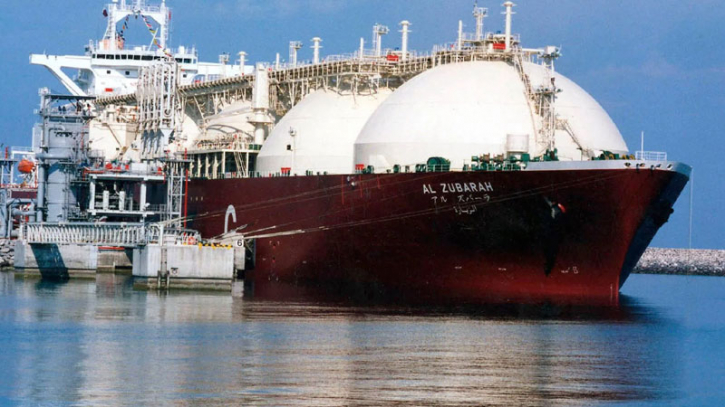Qatar pauses LNG shipments via Red Sea after Western strikes

One of the world's largest liquefied natural gas (LNG) exporters, Qatar has stopped shipments via the Red Sea after U.S.-led strikes against Yemen's Houthi rebels, joining other firms pulling back from the crucial trade route.
The Houthis have targeted the crucial corridor linking Asian and Mideast energy and cargo shipments to the Suez Canal onward to Europe in solidarity with Palestinians in Gaza, which has been under constant and relentless bombardment by Israel for over 100 days.
The attacks have disrupted global commerce and alarmed major powers in a regional escalation of the conflict that started after the Palestinian resistance group Hamas launched a surprise cross-border attack against Israel on Oct. 7.
Like a slew of other companies, the world's second largest LNG exporter QatarEnergy has now held back at least four LNG tankers from the Red Sea, a senior source said, adding that production continues.
That followed dozens of U.S. and British strikes on the Houthis in Yemen. They have been at war with a Saudi-led coalition for years but have also turned their sights on the sea next to them as a way to put pressure on Israel.
In the latest action, the U.S. military said late Sunday that its fighter aircraft shot down an anti-ship cruise missile fired by the rebels toward a U.S. destroyer. No injuries or damage were reported, it said in a statement on X, formerly known as Twitter.
With some supply lines affected by the instability, carmaker Suzuki said production would be halted at its Esztergom plant in Hungary from Jan. 15-21 as the Red Sea attacks had delayed the arrival of Japanese-made engines.
The Houthis have vowed to keep targeting Israel-linked ships and to give a firm response to the attacks on them.
U.S. ally Britain said it had no desire to be involved in the Red Sea conflict but was committed to protecting free navigation. "Let's wait and see what happens," Defence Secretary Grant Shapps told Sky News regarding potential further strikes.
China, too, is worried about the implications for its major commercial interests along the Suez Canal.
'Pause for security advice'
LSEG ship-tracking data showed that Qatar's Al-Ghariya, Al-Huwaila and Al-Nuaman vessels had loaded LNG at Ras Laffan and were heading to the Suez Canal before stopping off in Oman on Jan. 14. The Al-Rekayyat, which was sailing back to Qatar, stopped along its route on Jan. 13 in the Red Sea.
"It is a pause to get security advice, if passing (through the) Red Sea remains unsafe we will go via the Cape," the source told Reuters on Monday regarding QatarEnergy.
The longer route around Africa's Cape of Good Hope, which various shipping firms have opted for, can add about nine days to the normally 18-day trip to Europe.
The Red Sea is linked to the Mediterranean by the Suez Canal, creating the shortest shipping route between Europe and Asia, and is connected to the Gulf of Aden by the Bab al-Mandeb strait between Yemen and Djibouti.
About 12% of world shipping traffic transits the canal.
Front-month European benchmark gas prices on the Dutch TTF hub were down 1.20 euros ($1.31) at 30.40 euros per megawatt-hour (MWh) in early trade on Monday, LSEG data showed.
Asia spot LNG prices fell to a seven-month low of $10.10 per million British thermal units (mmBtu) on Friday, supported by healthy storage levels in Europe and northeast Asia.
Oil prices edged lower on Monday as oil supplies remain unaffected, despite escalating tensions in the Middle East, after rising 2% last week on potential disruptions emanating from the conflict.
In a speech, Britain's Shapps said that even though other European nations did not join the strikes against the Houthis, some for constitutional reasons, they had widely congratulated London for its action.
"The United Kingdom is one of those countries which has always traditionally, and continues to, step up to the plate when it is needed," he said.
.png)




